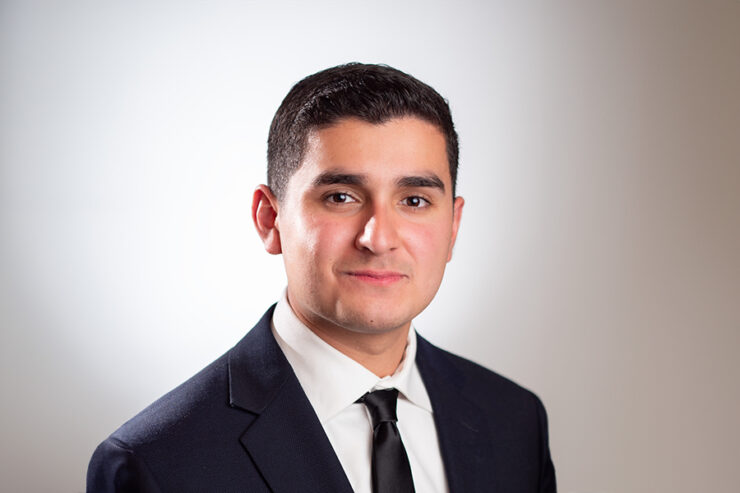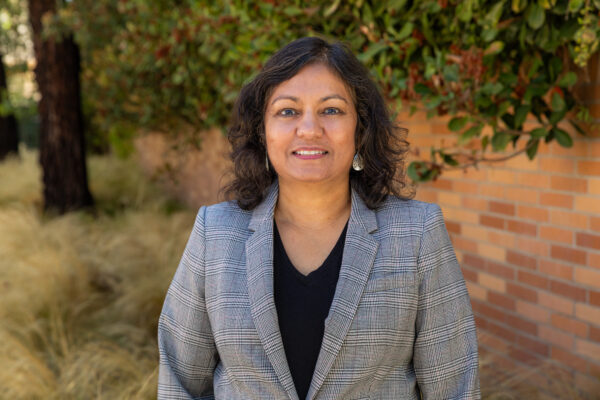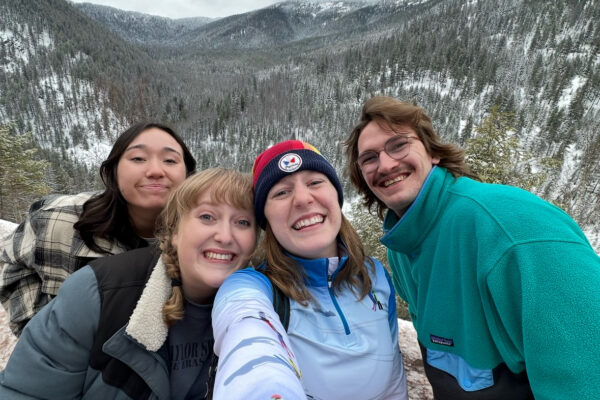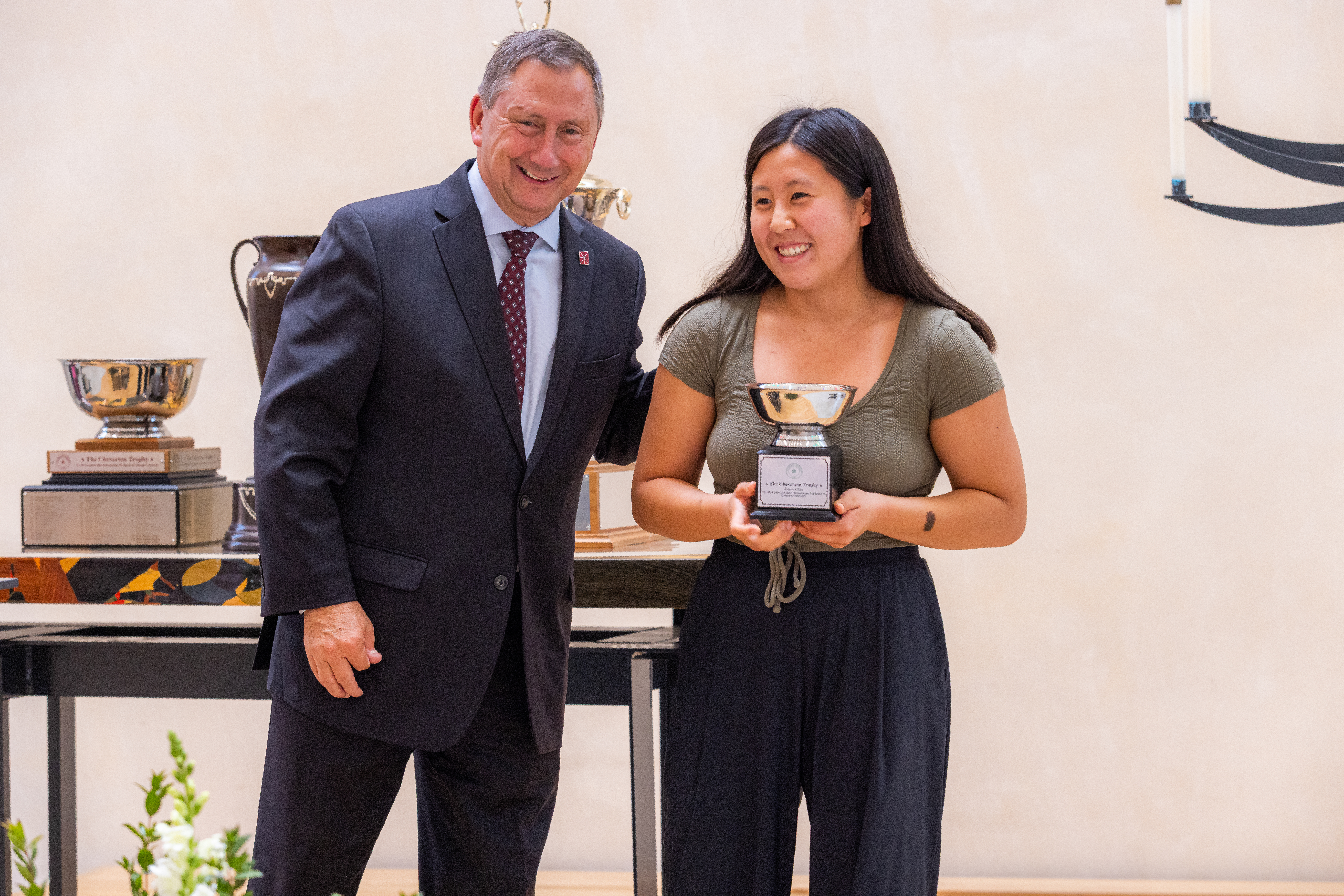In an election year full of political controversy, it has never been more important to examine how technology intersects with the function of democracy in the United States.
Robert Arellano ’26, an undergraduate student double-majoring in political science and business administration, is addressing the issue head on through a study that examines how artificial intelligence might influence voting choices.
“Artificial intelligence is a very new form of technology,” said Arellano, whose project “Artificial Intelligence: A New Platform to Influence Elections“ is part of Chapman University’s Summer Undergraduate Research Fellowship program.
“Programs like ChatGPT, Midjourney and a few others have only been around since 2022. They’re very new technologies and because they’re new, they’re very unregulated. There’s a lot of room for these new technologies to impact certain functions of society, positively and negatively,” he said.
Knowing that these new technologies have potential issues and that this November would be the first presidential election in U.S. history where AI would be available to voters got Arellano thinking. As a political science student, he was already interested in why different regions or demographics vote a certain way. Curiosity about how AI might impact the election was a natural next step.
“How can AI programs like ChatGPT sway a person’s voting preferences or political beliefs? By studying this relationship, we aim to get a better understanding of what biases or what sort of potential problems may arise from this new technology,” he said. “If we can study those problems we can better inform legislators or people who can regulate this technology, so that it doesn’t lead to misinformation or maybe political violence in certain extreme cases.”
Arellano’s study centered on a survey of random participants who were asked to share their opinions on a range of topics and then asked to read short passages that had been generated by ChatGPT on the same topics. A follow-up survey gauged how their responses may have been influenced by what they read, and also asked about the validity and credibility of the ChatGPT responses.
While Arellano tested several hypotheses in his survey — were people who were less informed about an issue more likely to be swayed by AI, or would AI have a stronger effect on people with firm political opinions? — one of the most interesting results showed a general belief among the participants that the AI-generated responses reflected a definite bias to one candidate over the other in the upcoming presidential election.
“I think the data and the comments both shed light into the true biases behind text-generated artificial intelligence programs like ChapGPT,” he said. “This goes back to the overall aim of my project, which is to get a better understanding of political biases and whatever sort of misinformation that a new technology like ChatGPT and AI can promote through its users.”
Like social media more than a decade ago, no one really knows what effect the new technology might have on society. While social media made it possible for news to spread quickly and keep people informed, abuse of the technology led to an increase in misinformation and a more hostile political climate, said Arellano.
“I believe that AI and ChatGPT could have the potential to do something similar,” he said. ”My research aims to understand what it is that’s causing this spread of misinformation or biases and then to better regulate it.”
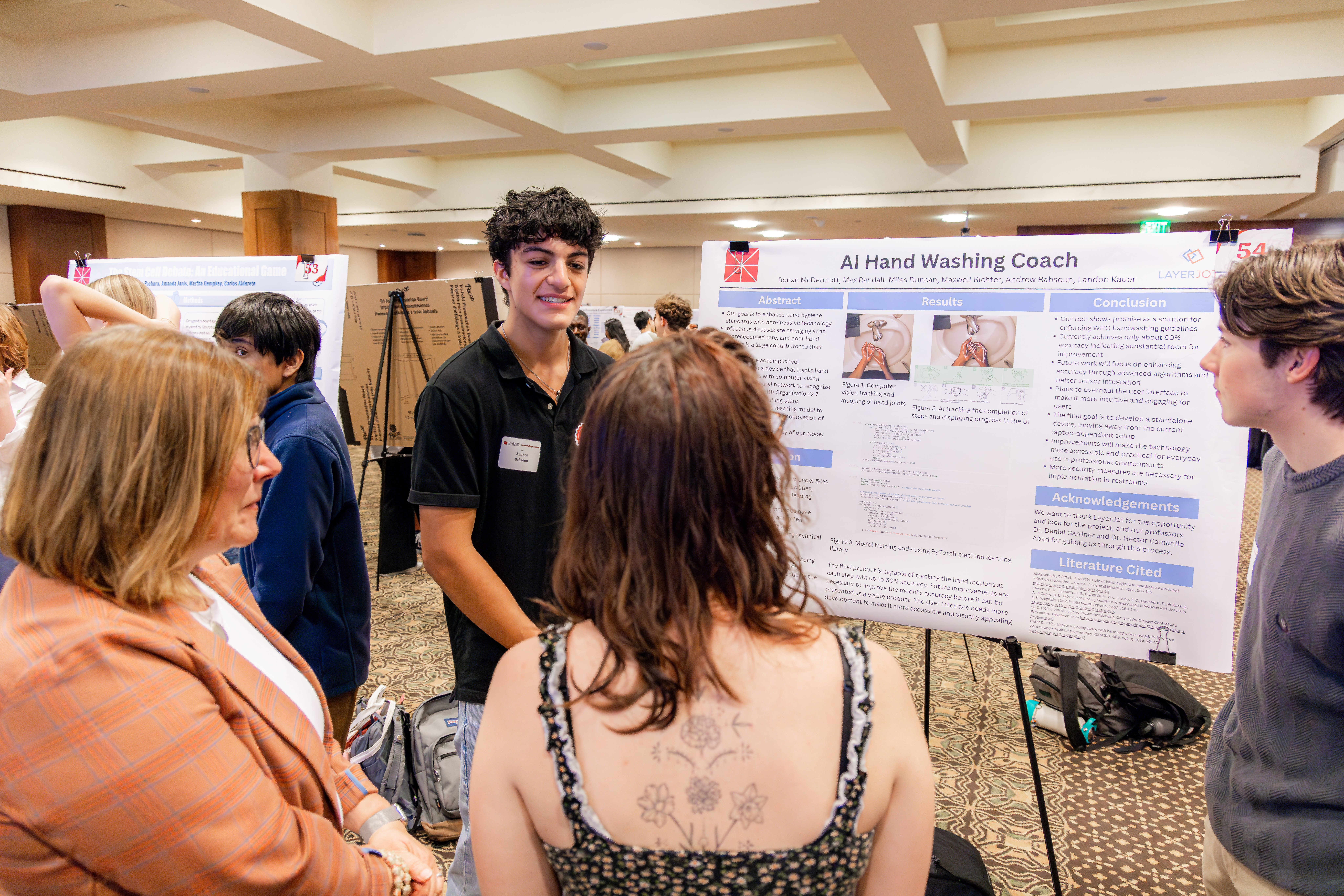
Arellano appreciated the opportunity SURF provided him to lead a major research project for the first time.
“The big draw of SURF is that it has the entire research experience that you can have as an undergrad student packaged into one two-month program,” he said.
“There are so many aspects of leading a major research project that you don’t take into account at the beginning. It’s sort of a learn-as-you-go experience,” he said.
His experiment methodology, for example, changed significantly from his original proposal. He also had to master aspects of data analysis that he hasn’t yet been taught in his political science classes.
“At the end of the program, I know I’ll be a much better informed and well trained student than I was going into the program,” he said.
Andrea Molle, associate professor of political science, was Arellano’s advisor on the project.
“I can only say his work was outstanding. He took on a complex project in experimental political science, on a very controversial and innovative topic, and designed it from the ground up, gathering very interesting results, and producing graduate student-level statistical analysis,” he said.
“We need more students like Robert in our department and to consolidate our potential for quantitative and analytical work with other researchers across campus,” said Molle, Ph.D.
Chapman’s Center for Undergraduate Excellence organizes SURF, an on-campus eight-week summer program that offers Chapman University undergraduate students experience in hands-on research and creative scholarship mentored by expert faculty. The fellowship includes a $4,000 stipend for 30 hours of research work per week.
